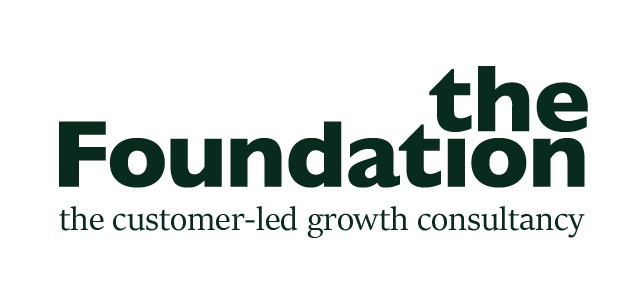The Pioneer interview with...Sharon Davies
Sharon Davies is the Chief Executive of Young Enterprise, a financial and enterprise education charity providing young people with opportunities to earn and manage their money. Young Enterprise, which celebrates its 60th anniversary this year, works with young people aged from 5 to 24. Sharon’s journey to CEO began whilst working in a supermarket aged 19 when one of her regular customers – a youth worker – spotted her potential. They encouraged Sharon to become involved in youth work, starting on a housing estate in Birkenhead. It was here that she discovered her passion for empowering young people and realised the profound impact alternative learning environments, combined with the right support, could have on their success. Sharon’s now been working with young people for over 30 years, fifteen of which she’s spent at Young Enterprise.
What does pioneering on behalf of customers mean to you?
Our North Star at Young Enterprise is providing opportunities and support for young people. The chemistry between those two things creates a powerful vehicle to change young people’s futures.
Those opportunities and that support need to be relevant and need to be relatable. Support also needs to be fast. We’ve got all kinds of customers at Young Enterprise. First and foremost it’s young people, but also educators, whether they be teachers, youth workers or lecturers. We also have other stakeholders, which include our volunteers, partners and funders, as well as Young Enterprise alumni. They all have ever-changing needs, so we need to be really fleet-of-foot.
So being pioneering is about how we reach for our North Star within a very fast-paced changing world. One example is the need to respond to an increasingly cashless society, where young people are regularly targeted for scams. Financial education needs to be one step ahead.
What do you think is the biggest challenge facing young people at the moment?
Post-pandemic we are seeing young people feeling that they're not necessarily prepared for the world of work. Employers are feeling the same. There are fewer opportunities available to young people and fewer environments where they can test their knowledge, skills and confidence in activities within a real-world setting. One of the biggest challenges is making those opportunities accessible for all young people, especially those with the greatest barriers to social mobility, because schools and teachers are very stretched at the moment.
At Young Enterprise we’re focused on increasing those opportunities – for example, by encouraging young people to set up and run their own Young Enterprise company. That helps them to really equip themselves and feel better prepared for the fast-paced world of work. This is about helping to create practical experiences that they can talk about in the future and bridge the skills they’re learning in school with the futures that they’re planning.
How do you stay connected to your customers?
We’re always asking young people and educators what they think of the programmes. We evaluate those using an NPS rating, alongside focus groups and a teacher’s advisory group who we consult to help us through issues we’re working on. We also work closely with our Young Enterprise alumni, especially in identifying the greatest barriers for them. More and more we’re hearing that the barriers are around a lack of opportunity and support beyond Young Enterprise. In response to that we’re working with partners who offer things like internships or networking opportunities beyond the programmes that we run.
What does it really take to be customer-led in your sector?
Firstly, it’s about listening and staying curious, being able to spot trends and then interrogate those trends further. Then, I think it’s about testing and learning and being able to adapt really quickly when something’s not working. Part of that is building a culture that enables you to test and learn without people feeling as if they can’t make mistakes.
A classic example of this would be during the pandemic. We were set to run 85 in-person events where young people would share their journey of setting up a business as part of our Company programme. The pandemic hit and we had to find a way for young people to still share their journeys and get the recognition they deserved. We had to rapidly pivot to deliver those events in the best possible way in a digital setting.
To test and learn successfully, you need to ensure that the customer is fully immersed in that experience and that they understand what you’re in pursuit of. In my experience, as long as the customer is understanding and is part of that testing and learning culture then they’re OK with it. It’s like co-creating a solution together.
How do you maintain the energy and enthusiasm when the going gets tough?
The first thing to understand is that you can't go against that tide if the energy is running low – it's pointless and it's unsustainable to push it – so you have to adapt to those energy flows.
Secondly, for me as a leader, it’s always important to have the ‘why’ of the organisation, that North Star, front and centre, to really help guide decision making.
Finally, it’s a mindset that pioneering is an infinite game. You’re never going to get to that end point and you need to live with that as a leader. It’s the spirit of continuous improvement – we need to stay curious and stay open in order to stay relevant to the young people and educators that we’re there to serve.
Are there any organisations that you particularly admire?
There’s an organisation called Youth Employment UK who are building youth employment spaces and really educating employers about what good youth employment looks like. They're constantly sampling young people to ensure that their needs are factored into employment offers. I think they're a fantastic organisation and the Chief Executive, Laura-Jane Rawlings, is a brilliant role model as a charity sector leader and somebody that I really admire.

